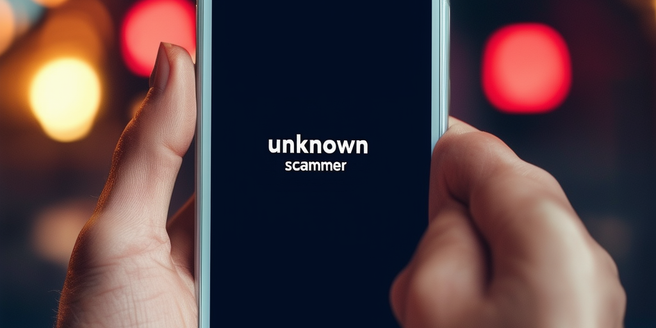
Understanding the Nature of Fraudulent Calls
Fraudulent calls, prevalent today, involve deceptive strategies to trick unsuspecting victims into sharing personal or financial details, often by exploiting their trust and naivety. The malicious entities behind these scams use them to commit identity theft, financial fraud, and other harmful cybercrimes, leaving victims in devastating situations. These phone-based fraudulent activities, which can lead to serious consequences like hacking personal accounts, ransomware attacks, or cyberstalking, continue to rise as our digital footprint expands. Therefore, we must emphasize the importance of vigilance against such fraudulent calls to mitigate the ever-increasing risk of becoming another cybercrime statistic.
Common Types of Fraudulent Calls to Watch Out For
Tech support scams, lottery scams, and fake charity scams are some of the most prevalent forms of fraudulent calls. These schemes are aimed at deceiving victims into surrendering sensitive information or money through manipulative tactics. Tech support scams involve fraudsters impersonating team members from legitimate tech companies, claiming the victim’s device is facing significant issues or infected with a virus, and then guiding them through a process to ‘fix’ it, which may involve installing harmful software or extracting sensitive data. Lottery scams trick victims into thinking they’ve won a large cash prize and prompt them to pay a fee or reveal personal financial information to claim the non-existent award. Fake charity scams see fraudsters posing as representatives from legitimate non-profits, hoping to prompt sympathy and generous donations which go straight into their pockets. Each of these deceptive strategies underscores the evolving threats posed by technology and emphasizes the need for heightened vigilance and awareness.
The Tell-Tale Signs of a Scam Call
Phone scams often start with a persuasive, computer-generated voice promising a ‘once in a lifetime’ deal. The caller typically uses aggressive and high-pressure tactics, rushing you into quick decisions by creating a sense of urgency. To protect yourself from such scams, remember the adage: ‘if it sounds too good to be true, it probably is.’ An offer that seems overly generous, or where rewards far overshadow any effort required, should raise suspicion. This principle can help in preventing potential scams.
Remembering these signs can guard you from becoming a victim of phone scams. It’s crucial to be vigilant, questioning extraordinary offers. Unfortunately, there are people ready to exploit others’ trust. Knowing what to be cautious about and being ready to regroup when something feels wrong is vital for your personal safety.
Impact of Fraudulent Calls on Personal Security
Deceptive calls and scams pose a significant threat to personal security, potentially leading to consequences like identity theft or financial loss. Understanding the tactics of these fraudsters is crucial, as it allows for early threat recognition and prevention of fraudulent incidents. Staying informed about these tactics and maintaining vigilance during unknown communications is important. As societies become increasingly interconnected, it’s key to not only improve our awareness but deepen our understanding of these manipulative techniques to avoid falling victim to such frauds.
Preventive Measures against Fraudulent Calls
Implementing preventative measures, such as thoroughly examining unsolicited calls for red flags like persistent requests for personal information or aggressive tactics, can significantly reduce the risk of phone fraud. Remaining cautious about divulging personal data over the phone, even if the caller seems professional, is also important. Regular oversight of all financial transactions, including routine monitoring of bank statements and credit card logs, not only ensures no unauthorized activities have been conducted but also aids in the identification of potential fraud patterns. Remember, always take a proactive approach in managing personal information and financial records to build a strong defense against phone scams, consequently protecting your privacy and financial integrity.
How to Report a Fraudulent Call
If you suspect a fraudulent call, it’s vital to act promptly, reporting it to key authorities like your local law enforcement agency and telephone service provider. It’s critical to not only report the incident, but also document it in detail, including the caller’s number, the time of the call, and any details of the conversation. These details can help identify the fraudster and could potentially prevent someone else from becoming a victim. Therefore, report suspicious calls promptly, documenting every possible detail. Your vigilance is your best defense against these fraudulent schemes.
